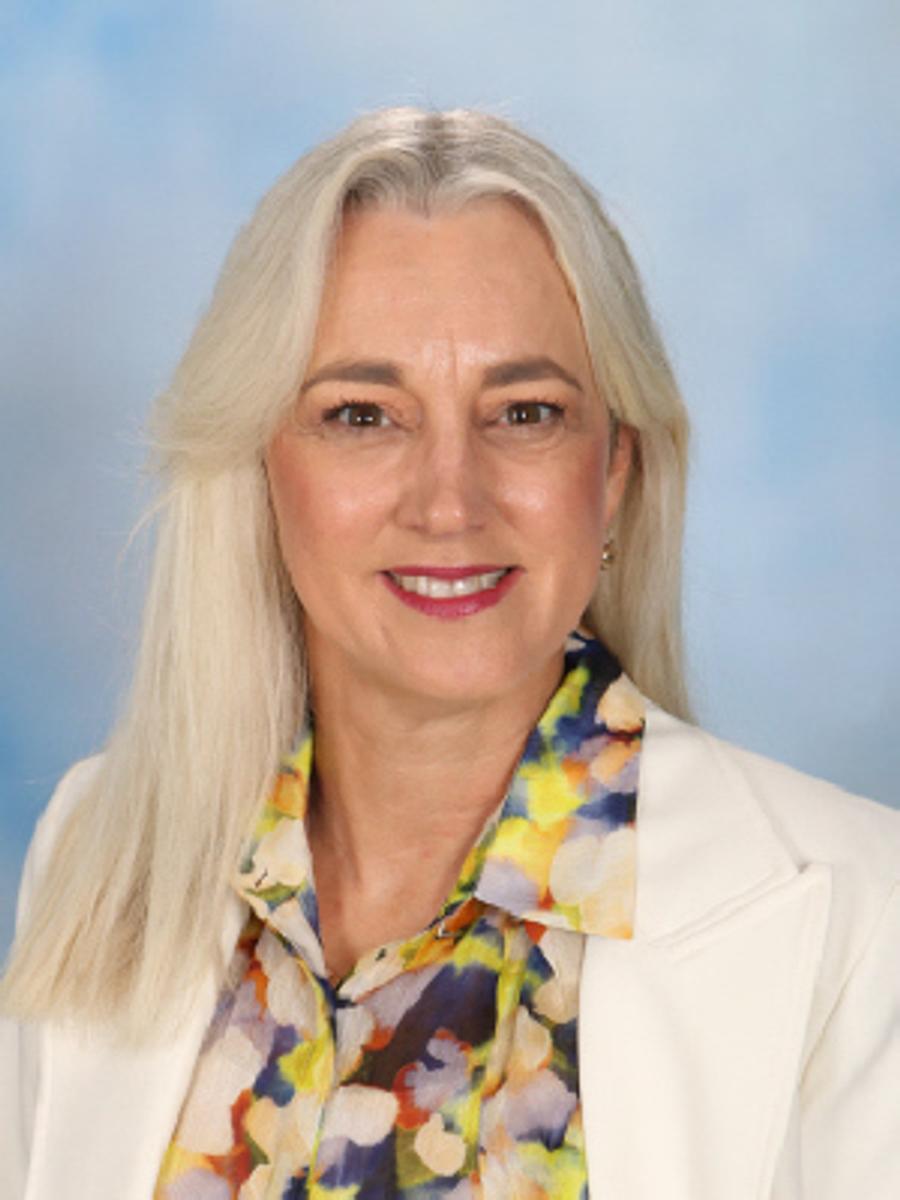Deputy Principal
Student Development & Wellbeing - Michelle Licina

Deputy Principal
Student Development & Wellbeing - Michelle Licina


Mastering Children’s Mental Health in the Digital Age
Smart phones and social media are often at the centre of friendship conflict in our young people. I refer you to the article in this newsletter provided by the Heads of House for more insight. While most of the damage occurs between 3pm and 8am and on weekends, our College is required to repair the harm when the students involved come together on site during the school day. Much of my professional reading this year has been centred on understand the statistics and trends in the mental health of our youth. The link between smart devices and their negative impact on self-esteem and mental wellbeing is now evidence-based as they have been in existence long enough to track meaningful data.
A fortnight ago, I ventured to South Brisbane to attend Professor Selena Bartlett’s lecture ‘Being Seen – Mastering Children’s Mental Health in the Digital Age.’ Professor Bartlett leads the Neuroscience and Neuroplasticity Group at the Translational Research Institute, School of Clinical Sciences in the Faculty of Health at QUT in Brisbane. She is the voice behind the 'Thriving Minds’ podcast and an author of over 110 research papers. How lucky are we to have an expert in this space in our own city of Brisbane! She has been tracking this evidence-based data with interest and in great detail. The panel of experts – a past school principal, lead news editor, university lecturer and the CEO of Parent TV – provided fascinating insights into the world of our young people who do not know a life without smart devices. It was a sobering discussion about the impact of smart devices and social media on young minds. I left the lecture feeling slightly numb. However, the opportunity to read Professor Barlett’s book from cover to cover has given me hope that the positive adults in the lives of our young people can create the societal shift required to strike an appropriate balance.
Social media is a technology that feeds into our need to belong. But our brains have not evolved at a rate that coincides with the rate of developments in this area. How do we belong when we are comparing ourselves to billions of people? (Bartlett, 2024) At times – in both schools and at home – it’s a bit of ‘wack-a-mole’ across the platforms and the devices accessing them. So, if children are the digital natives and the adults are not, how do we navigate parenting in the digital age? The good news is that parents have a wealth of life experiences and a nuanced understanding of human behaviour to effectively counter the digital pressure wielded by both tech-savvy children and profit-driven big tech.
There is a general feeling that the ability to keep our children safe online is insurmountable in this digital age. Have faith! Everyone of us has the capacity to spark societal shift. Two things come to mind for me: The 2023 FIFA Women’s World Cup and the impact of the Matildas and other women’s teams that changed the perception of women’s soccer and women in sport. Forever. We finally saw a genuine desire for others to succeed. I witnessed this firsthand as a FIFA volunteer at this epic event. In 2024, it is hard to go past the success of our female athletes at the recent Paris Olympics. Not only the success but the genuine happiness and joy offered by athletes to their competitors at the finish lines. This was such a stark contrast to the traditional narrative where the success of women was often dragged down by other women. The digital age presents us with a massive challenge, however, history has consistently shown a unified humanity has demonstrated resilience and adaptability in the face of transformative social change.
We all know that screen limits, tech-free zones and rules for social media are important and most of us are engaging in this already. When emotions are running high and a child’s behaviour feels overwhelming, the open-ended questions below (Bartlett, 2024) may be helpful to build some ‘digital rapport’ with your young people:
Understanding Screen Time Choices
‘Can you help me understand what draws you to this game/show/app?’
‘What do you like most about spending time on your device?’
‘How do you feel when you’re not able to use your screen?’
Discussing the Rules
‘What are your thoughts on our current screen-time rules?’
‘Why do you think we have rules about screen time?’
‘How do you feel about the amount of time you spend on screens compared to other activities?’
Addressing Rule Breaking
‘What led you to go around the rules we set?’
‘Please tell me what you’re trying to accomplish or experience that you feel you can’t do within our current guidelines?’
Exploring Emotional Responses
‘How do you think your mood changes with the amount of screen time you get?’
‘What emotions do you experience when you think about reducing screen time?’
Focusing on Solutions and Alternatives
‘What activities could you see yourself doing if you spent less time on screens?’
‘What would a reasonable screen-time schedule look like for you?’
Enhancing Mutual Understanding
‘What is there about screen time that you wish I understood better?’
‘What could we do as a family to find a balance between screen time and other activities?’
This is a great start for keeping the communication lines open between caring adults and young people.
I am grateful for Mount Alvernia’s ‘absolutely no phones’ policy during the school day. I see young people across all our playgrounds engaging in the art of conversation and human connection. Laughter. Movement. Listening. Comforting. Celebrating. It is a stark contrast to what I witness as I drive past school students (and adults) waiting at bus stops and train stations staring deeply into their screens. I also notice the shift once our students have passed through the gate to the pick-up zone as their focus moves immediately from their friends and peers to their screen. It is my hope that the strong partnership between the college and our families will create the transformative social change required to re-claim the mental health and wellbeing of our young people with a healthy balance of safe screen time and nurturing human connection. We’ve got this!
Bartlett, S. (2024). Being Seen: Mastering Parenting in the Digital Age. Brisbane: Phineline Publishing .